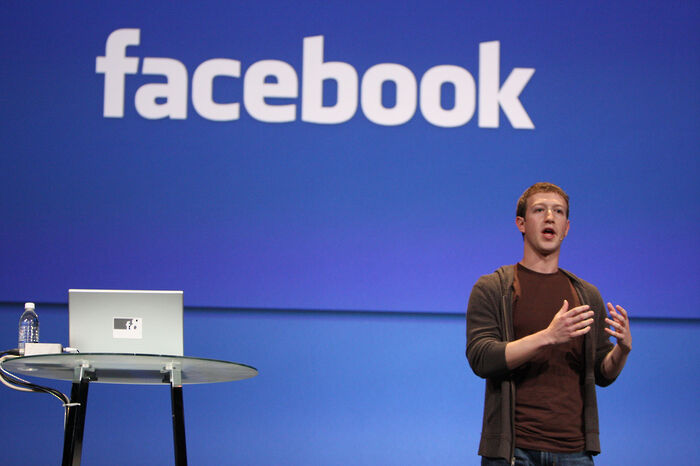Grudgebridge has become a platform for abuse
After himself being targeted by an anonymous Grudgebride submission, Oliver Winters explains why it has become so easy for the page to turn from satirical moaning to a safe space for online bullying

Grudgebridge is something that many Cambridge students are familiar with seeing in their Facebook newsfeed. Marketing itself as a sort of antithesis to the more popular Crushbridge, Grudgebridge states that it is trying to ‘make Cambridge less awkward, one declaration of irritation at a time’.
Certainly, sometimes it does do this, with a good dose of humour thrown in as well. ‘Grudge on whoever always leaves a baguette in our kitchen at pre-drinks’: extremely funny. ‘Grudge on tourists who stand in the road taking pictures’: highly relatable. On occasion, Grudgebridge has made us all chuckle or nod sympathetically. So why, suddenly, is a problem developing?
“The whole point of Grudgebridge is that it provides a safe space to be offensive”
Grudgebridge has recently become a platform for cyberbullying and often hateful and offensive remarks. Using the cover of anonymity, certain individuals are broadcasting views attacking mental health issues as well as maliciously targeting individuals. Last Friday, I woke up to a barrage of messages from friends telling me to check Grudgebridge and not to worry, they were all here for me. Someone had submitted a particularly hateful post attacking me in a way I’ve never experienced in person.
To be absolutely clear, this article is not designed to portray myself as a victim, nor is it some sort of call that Grudgebridge should be banned. Cyberbullying is hardly a new problem and is not one that is likely to be dealt with soon. The issue with Grudgebridge, however, is that it provides both legitimacy and high levels of exposure to content that otherwise would be condemned as simple trolling.
Alongside the attack on me were posts about Magdalene formal, halloumi, and the Daily Mail, all of which can be seen as legitimate content keeping with the apparent ethos of the page. By equating the attack on me to pieces of satire, the actual significance of the post's content is diminished: targeted cyberbullying, something which has no place on the internet and should be condemned wherever possible. Not trivialised.
Moreover, even on a simple logistical level, trolling someone on the internet is difficult. Finding a platform which is easily accessible and not subject to structural moderation is not easy. Yet Grudgebridge is followed by over 4,000 people, most of whom I assume follow the page for the satirical content, and all of whom will have been exposed to this attack.
Although thankfully the post was liked by only two people, neither of whom I know, two comments attacking the content received a combined 100 likes from people who will have read the post. One Grudgebridge in defence of the page argues that ‘life isn’t a safe space’. But the whole point of Grudgebridge is that it provides a safe space to be offensive with no possibility of a comeback.
A further issue is that, due to the structure of Facebook pages, the content of Grudgebridge is controlled solely by admins, which gives them unrivalled capacity to control attacks such as this, whilst still hiding behind anonymity. Many of my friends informed me that after reporting the post, they were informed by Facebook that it failed to breach their rules on acceptable content, which is in all fairness completely legitimate. Whilst hateful, it uses no genuinely offensive language and is only malicious contextually. Furthermore, despite requests made to the admins, the post remains on Facebook. As such, the power to prevent cyberbullying remains entirely in the hands of people who cannot be held accountable for it.
However, these problems are secondary to the major issue surrounding the use of Grudgebridge to post malicious content. Quite simply, it is not helpful or useful in any way for people to vent anger anonymously online. Perhaps there are certain things I should take on board, but an attack via the internet is hardly likely to encourage me to listen to someone who can’t even bring themselves to confront me without hiding behind anonymity.
If anything, posting content like this is far more likely to make the recipient more defensive and therefore exacerbate the issue. Problems need to be dealt with constructively if anyone is to expect improvement. And anyone writing offensive content on a popular Facebook page cannot legitimately expect anything to be resolved. Grudgebridge gained popularity by expressing irritation, not hatred, and it is probably beneficial to everyone that it continues doing this and only this
 Interviews / You don’t need to peak at Cambridge, says Robin Harding31 December 2025
Interviews / You don’t need to peak at Cambridge, says Robin Harding31 December 2025 News / Unions protest handling of redundancies at Epidemiology Unit30 December 2025
News / Unions protest handling of redundancies at Epidemiology Unit30 December 2025 Comment / What happened to men at Cambridge?31 December 2025
Comment / What happened to men at Cambridge?31 December 2025 Features / ‘Treated like we’re incompetent’: ents officers on college micromanagement30 December 2025
Features / ‘Treated like we’re incompetent’: ents officers on college micromanagement30 December 2025 Theatre / We should be filming ADC productions31 December 2025
Theatre / We should be filming ADC productions31 December 2025








